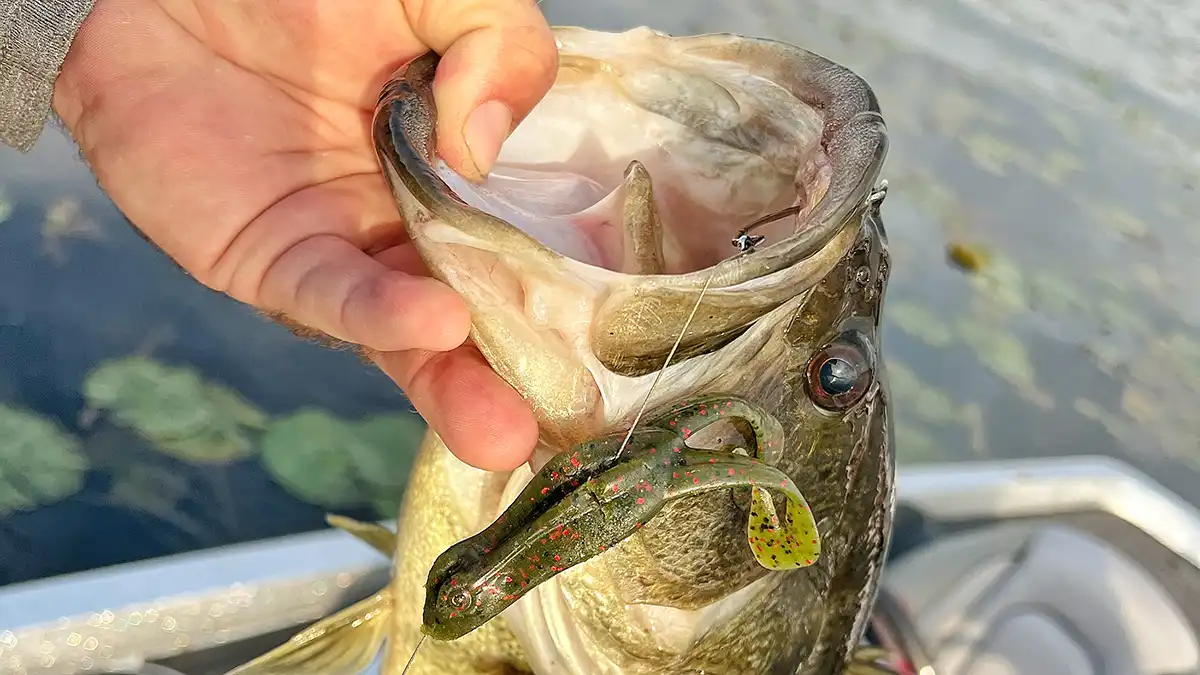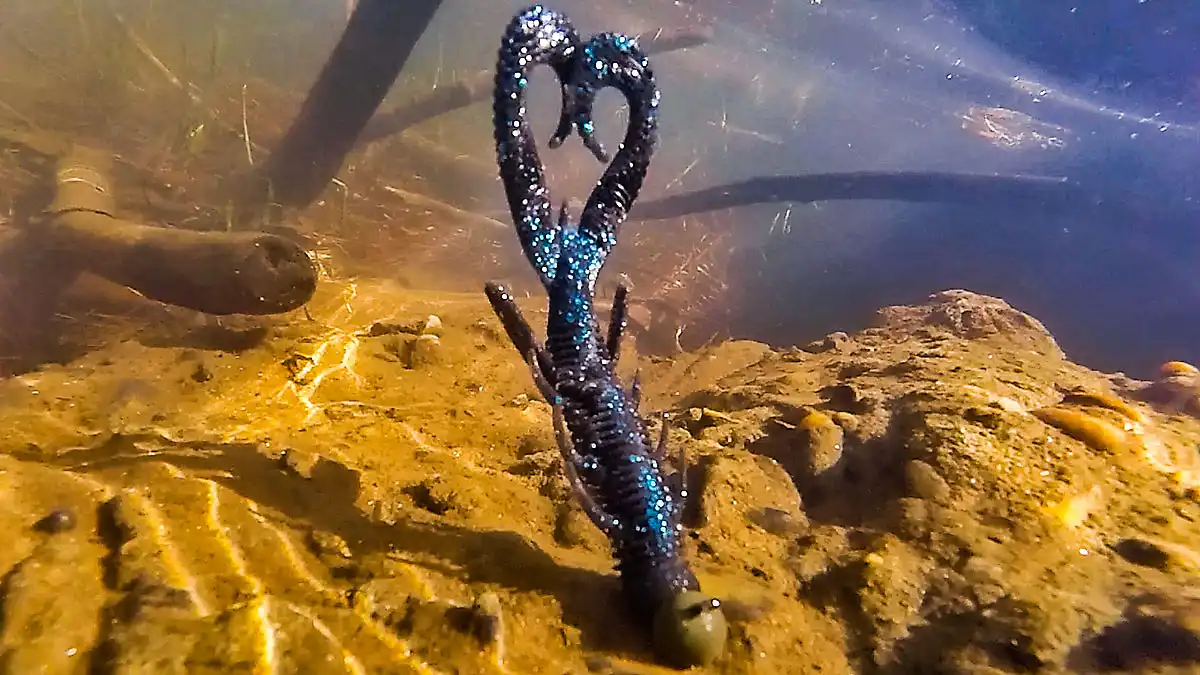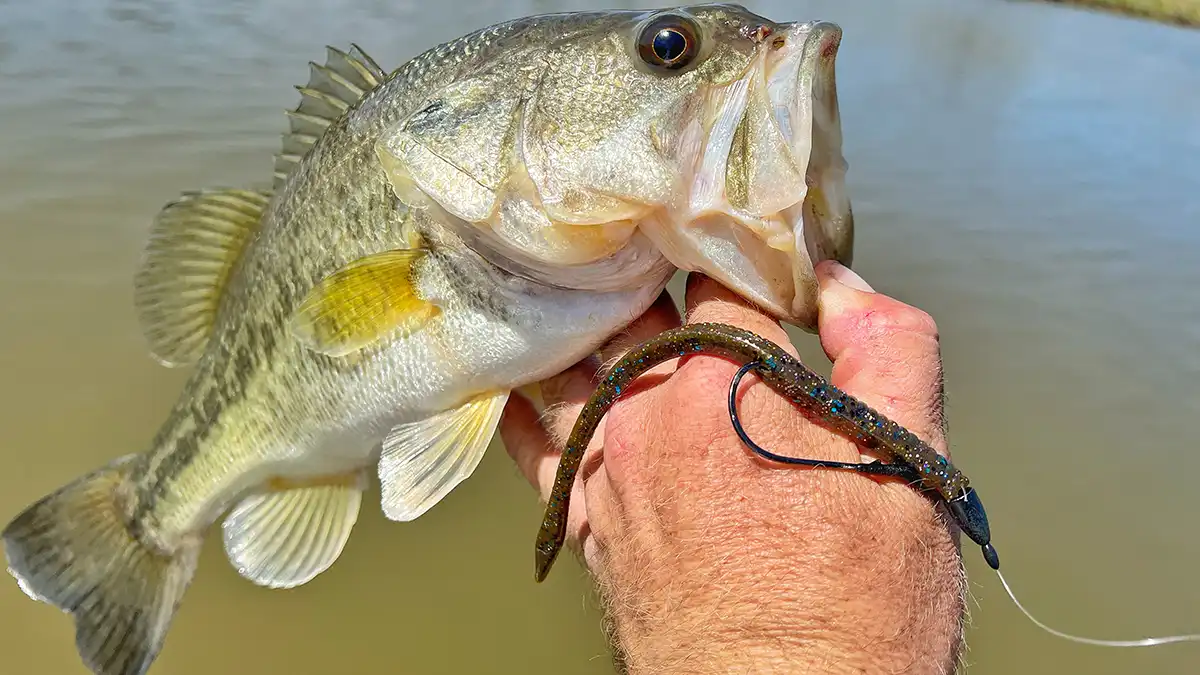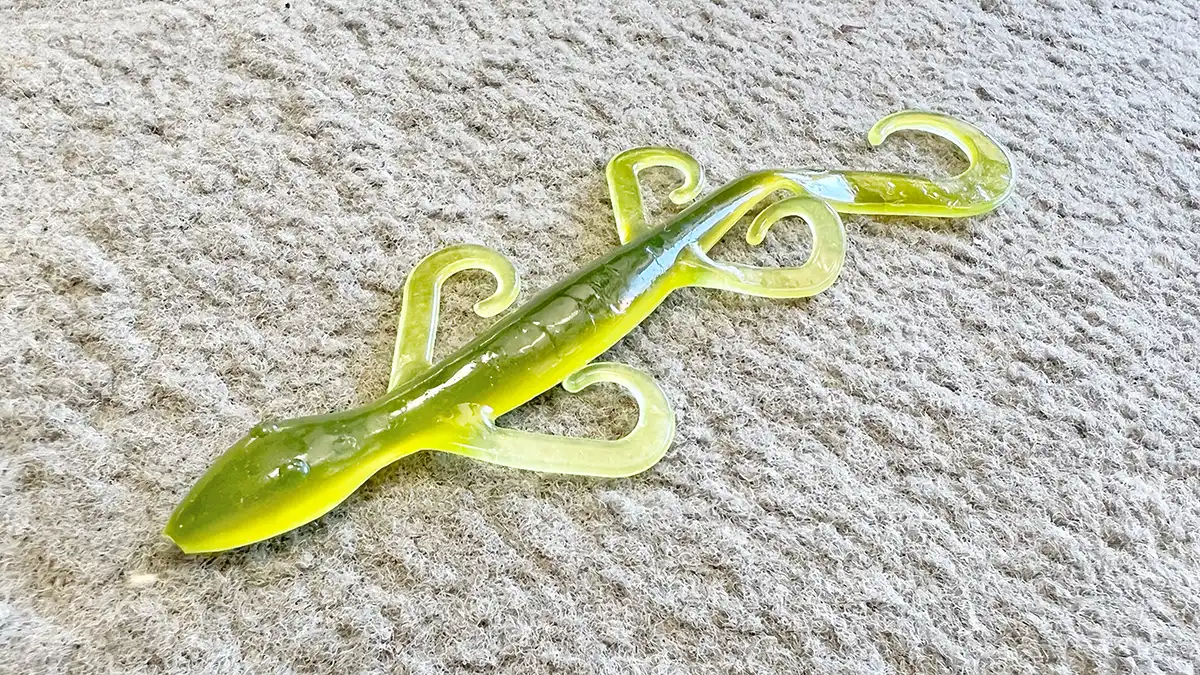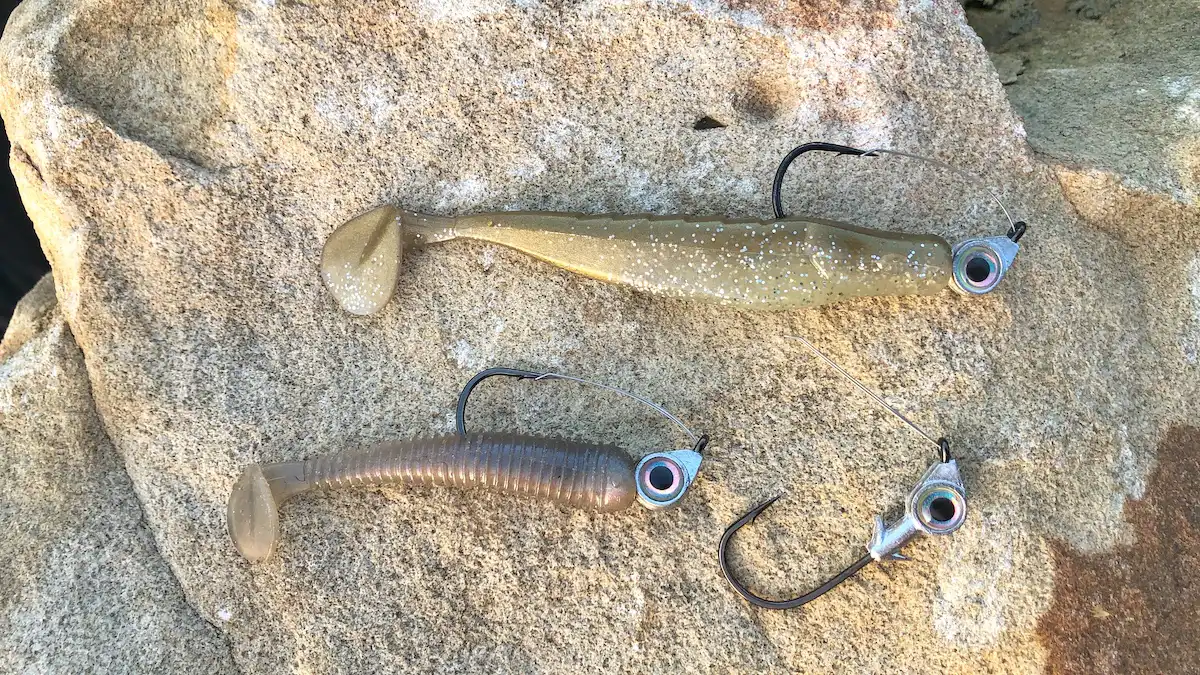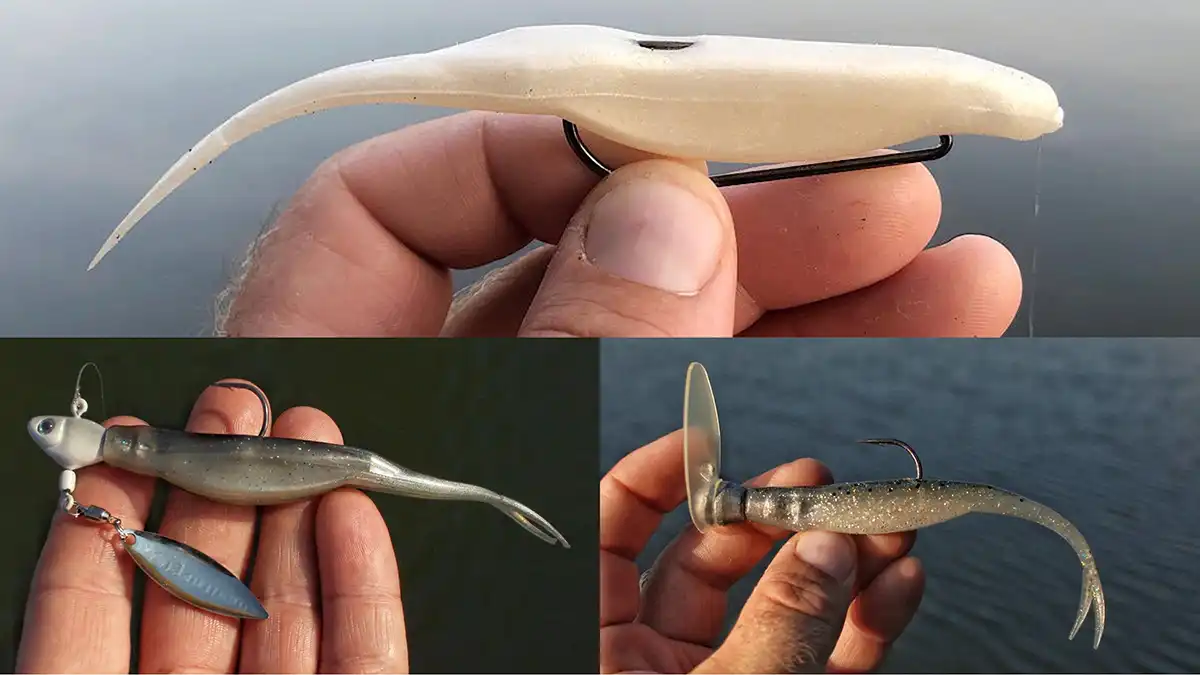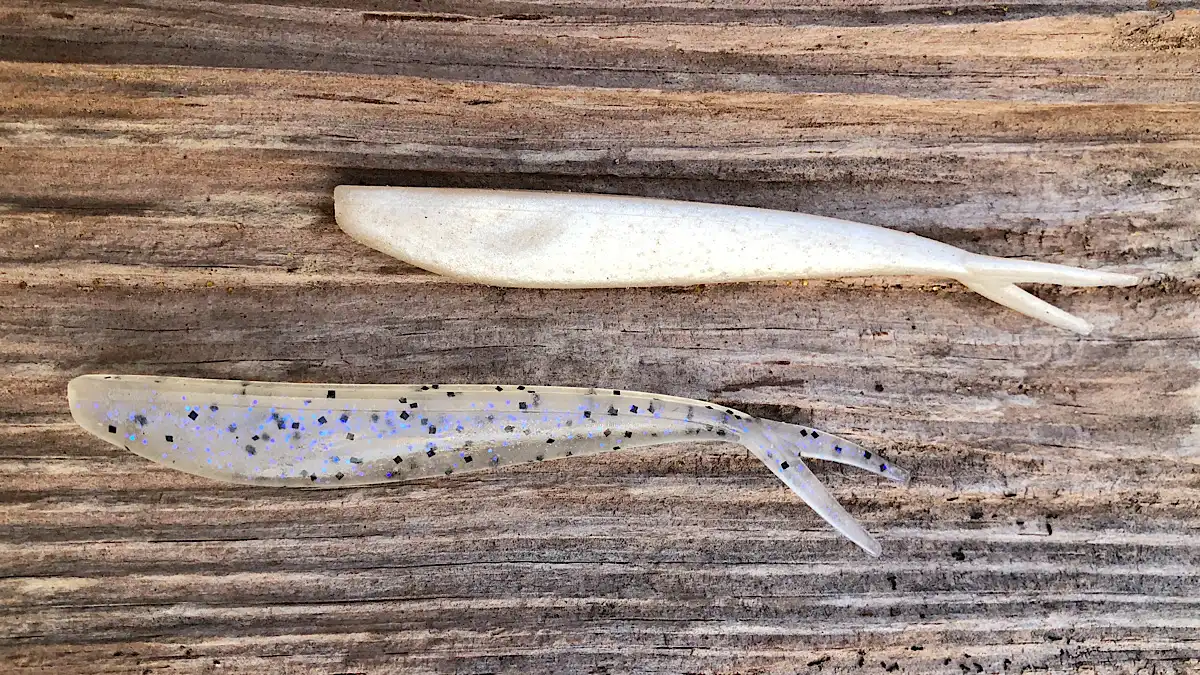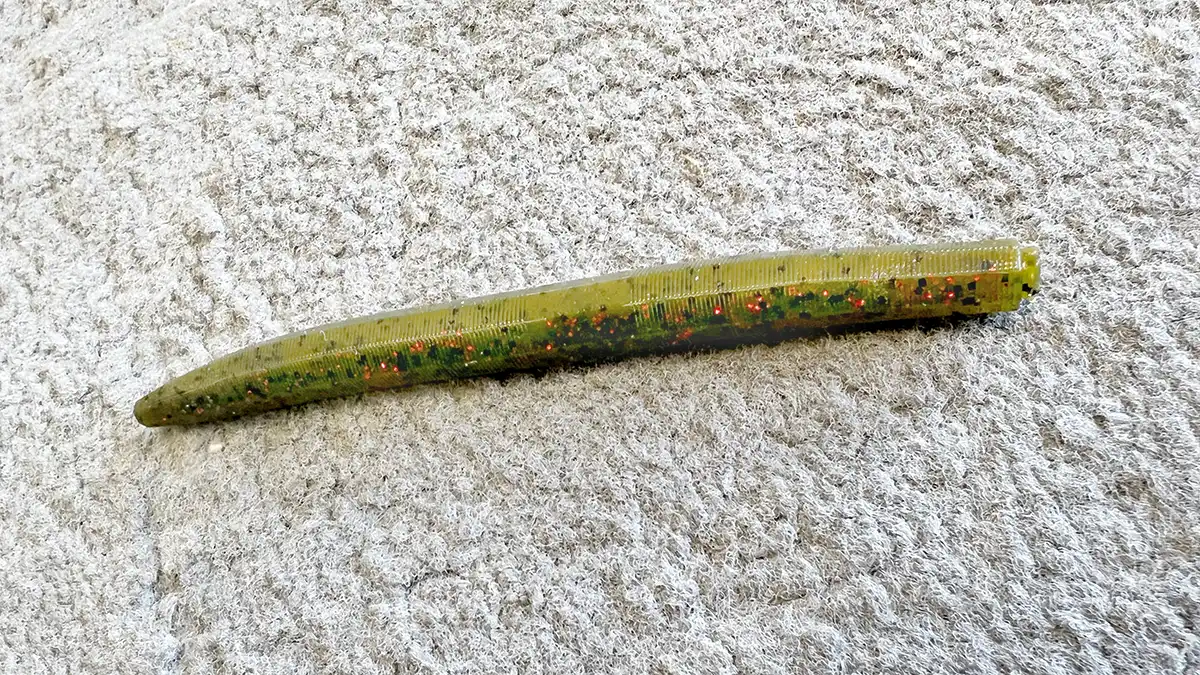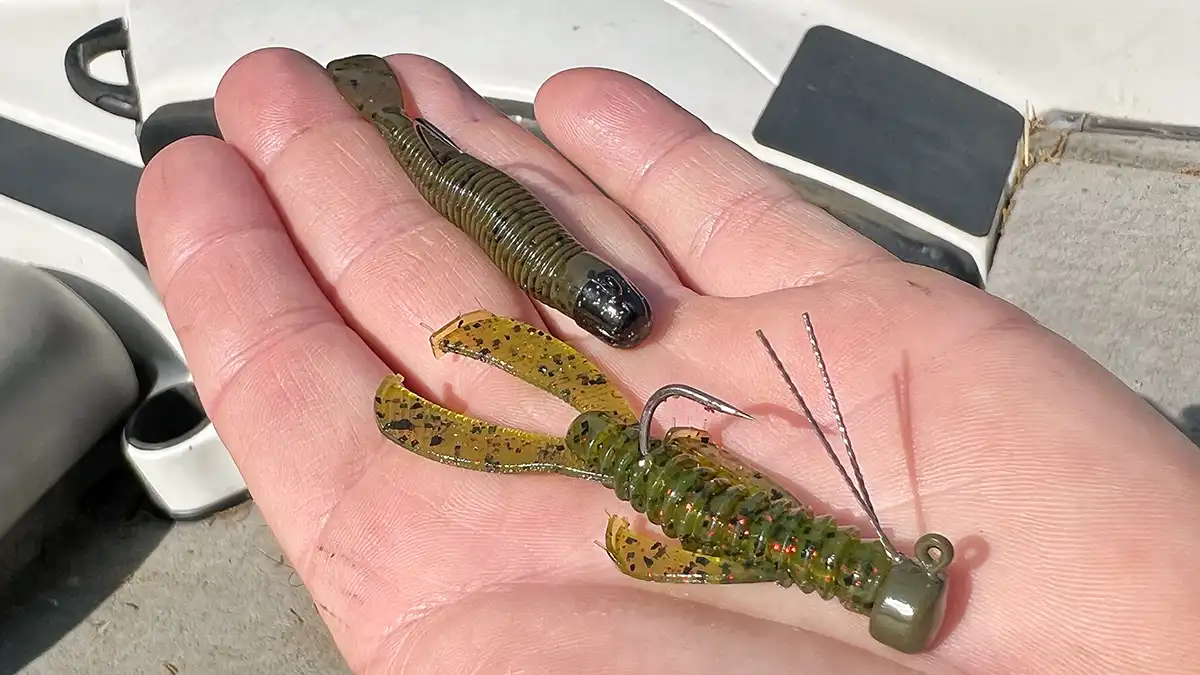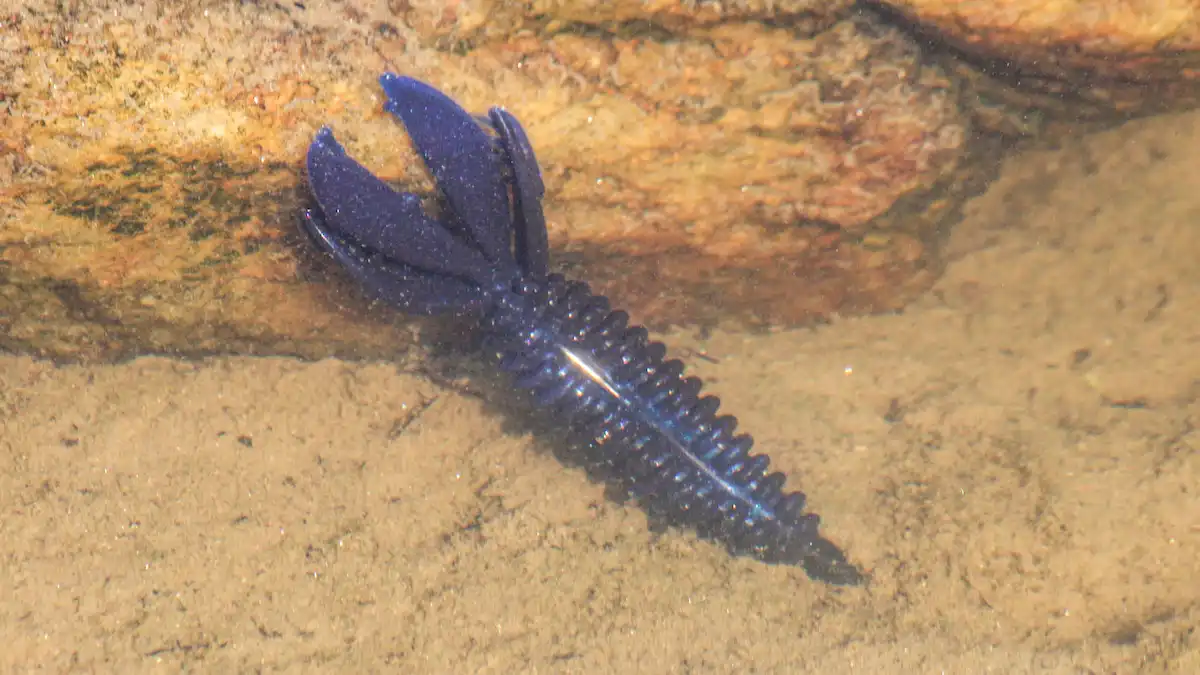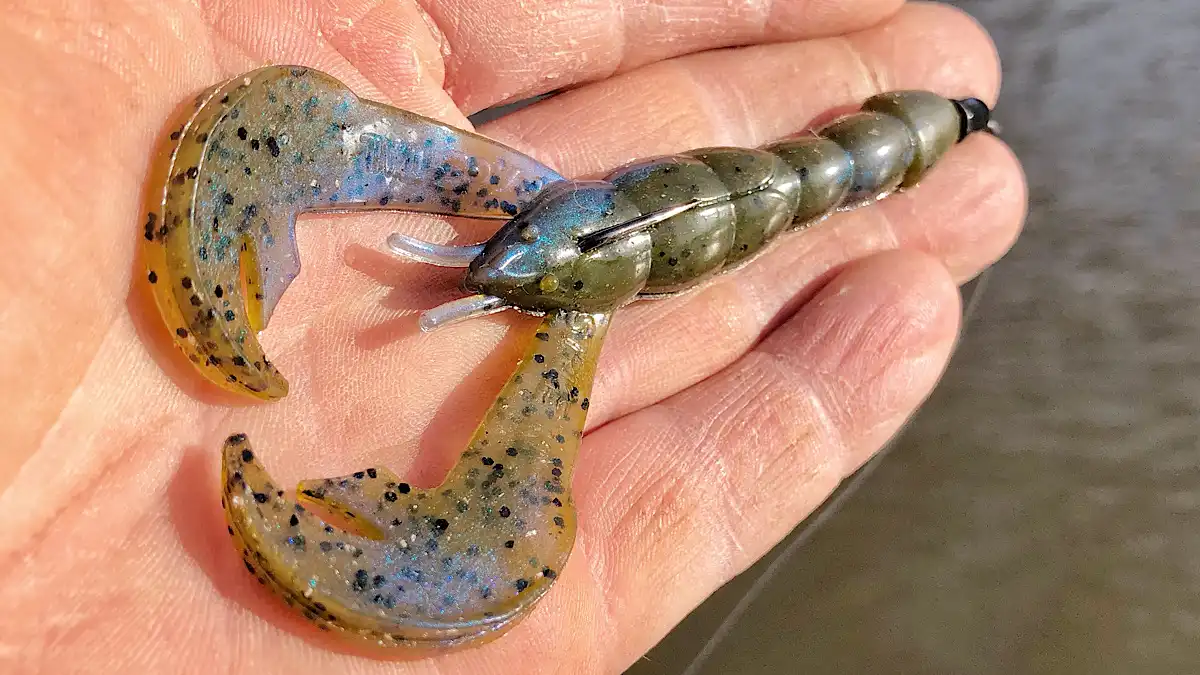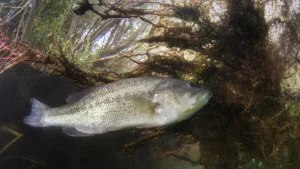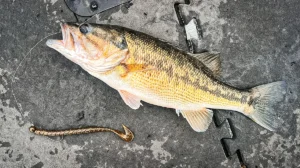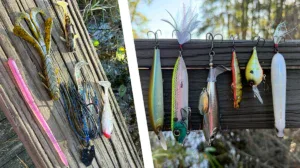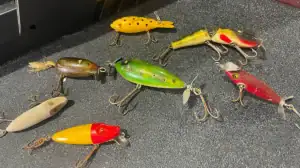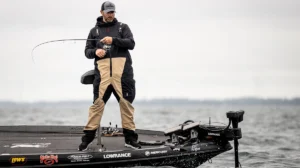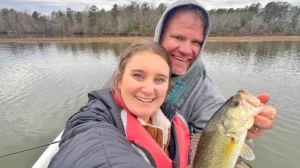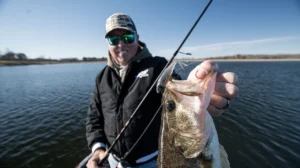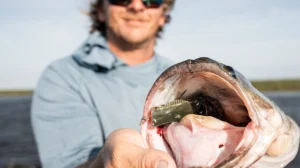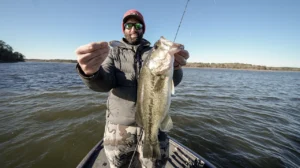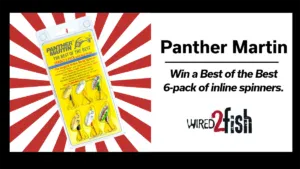Almost all artificial lures used for bass fishing can be lumped into one of two main categories: hard lures or soft plastic baits. Hard lures are baits like crankbaits, jerkbaits, poppers and glide baits. Soft plastics are your worms, tubes, lizards and the like. Today is all about soft plastics. We’re going to give a brief overview of a variety of different soft plastics, while also grouping together additional resources if you’d like to dive deeper into any particular bait type.
STYLES OF SOFT PLASTIC BAITS
- Worms
- Lizards
- Swimbaits
- Soft jerkbaits
- Minnow style baits
- Soft stickbaits
- Ned baits
- Creature baits
- Craws
- Toads
- Tubes
- Grubs
- Trailers
DIFFERENT MATERIALS AND METHODS FOR MAKING SOFT PLASTIC BAITS
A soft plastic bait is made one of two ways: by injecting or hand pouring molten plastic into a 3D cavity in a mold or tray. Injecting plastic into large, multi-cavity molds is the modern practice which allows for much higher production rates and produces a more consistent bait.
Hand pouring is the original method and is still used by DIY enthusiasts as well as a small group of commercial bait makers that offer super soft, multi-tone plastics (typically for finesse fishing) that can’t be created with injection molds.
Soft plastics can be grouped into three main categories based on the type or density of the plastic used: traditional soft plastics, TPE plastics and high-density plastics. Most traditional soft plastics are made of plastisol, which is a vinyl plastic, mixed with some combination of salt, glitter, color, scent and oil.
Then there are the super buoyant, extremely durable soft plastics made of TPE materials (Thermoplastic Elastomers), like Z-Man’s ElaZtech. Last but not least, there are the new age, super dense soft plastic baits like the Deps Cover Scat Soft Stick Bait that sink at a faster rate than traditional soft-plastics.
WORMS
When talking about styles of soft plastic baits, no one category is as broad or long standing as the soft plastic worm. From straight tail worms (like the Zoom Trick Worm) to curly tail worms (like the Zoom Ol’ Monster) to swimming worms (like the Zoom Ultra Vibe Speed Worm), there’s a worm that can be rigged a dozen different ways to fish throughout the whole water column. We have a whole guide on how to rig a worm.
LIZARDS
Soft plastic lizards have been around a really long time too. Like worms, these baits work very well on Carolina rigs and Texas rigs. A Texas rigged green pumpkin lizard is one of those all-time classic baits that can catch bass in any color water, at a wide range of depths, anytime of the year. Click here for more information on how to fish a lizard.
SWIMBAITS
Soft plastic swimbaits are great bite getters year round. You can rig a 3-inch Keitech Easy Shiner on a 3/16th-ounce head to pickoff spotted bass in the winter, weedless rig a 6.5-inch Gambler Big GZ for hayfields in Florida during the spawn or put on a 5.5-inch Shadalicious swimbait to catch largemouth on ledges in the summer. Swimbaits are as versatile as their little tantalizing tails are enticing. Checkout this video for more on how to rig a soft plastic swimbait.
SOFT JERKBAITS
Soft plastic jerkbaits are often referred to collectively by the namesake of the most famous one, the Zoom Super Fluke. Flukes, and other baits like them, work really well around schooling and shallow fish rigged weedless and weightless. You can also rig two of these together to make a double-Fluke rig (or donkey rig). Additionally, you can use a Fluke on a Scrounger or an Underspin. There are several effective ways to fish this style of soft plastic, here are five of them.
MINNOW-STYLE BAITS
Minnow-style baits might have been lumped into the Fluke category a few years ago, but with the invention of forward facing sonar, this former niche segment of a subcategory has become a rapidly advancing demographic all its own. From Yamamoto Shad Shape worms that work extremely well on drop shots to the small Z-Man Jerk ShadZ that won the 2023 Bassmaster Classic, these minnow-style soft plastics are very popular these days.
SOFT STICKBAITS
Baits like the Yamamoto Senko have caught countless bass over the last couple decades. Not to mention their predecessor, the Slug-Go, which boated numerous big bass before the first Senko ever fell out of the mold. These nothing-looking baits have a subtle shimmy on the fall that bass simply can’t resist. Though stickbaits work well on numerous rigs, the wacky rig is likely the most effective.
NED BAITS
Soft plastics specifically designed for Ned rigs represent another expansive category that has exploded with variety over the last few years. Early on, anglers were basically just biting a Senko in half and sliding the tail end on the back of a jighead. Now, there are several different body styles and dozens of little do nothing looking baits designed specifically for Ned rigs. This is probably the category where TPE materials like ElaZtech shine the brightest, allowing anglers to catch bass 10 to 1 on products like the Z-Man Finesse TRD.
Here’s a complete guide on how to fish a Ned rig.
CREATURE BAITS
When you hear creature baits, the two main bait types that probably come to mind the most are beaver-style baits and hog-style baits (named after the Reaction Innovations Beaver and the Zoom Brush Hog). These baits don’t look like anything in particular, but are certainly believed by the bass to be creatures of some sort and they gobble them up. Checkout this video on how to Texas rig creature baits for big bass.
CRAWS
Craws are a staple of the soft plastic game, offering baits that can be used alone or in conjunction as trailers with a variety of different lures. Classic soft plastic craws like the Strike King Rage Craw, Zoom Ultra Vibe Speed Craw and NetBait Paca Craw all have unique actions that catch fish extremely well. Checkout some of our favorite craws here.
TOADS
Soft plastic toads are lots of fun to fish and they produce big bites. Though these baits are designed to mimic frogs, they’re believed often by bass to be some other form of prey like bluegill, shad, birds or rodents. You can rig a toad weedless on an EWG hook or slip one up on the back of a buzzbait. Here are more tips on which toads are best for what.
TUBES
Tubes are an old school staple. Though you don’t see many anglers pitching and flipping one of these shallow like you used to in the days of Denny Brauer and Tommy Biffle, they still hold down an important role in smallmouth fishing up north. If you’d like to learn more about this bait category, checkout these five tips on when and where to fish a tube.
GRUBS
Grubs are another soft plastic bait category that has become less utilized in recent years, likely a result of the explosion we’ve seen in the soft plastic swimbait market over the last decade or two. Still, these baits catch fish on the backs of spinnerbaits, Carolina rigs and jigheads, especially under dams in current. Click here for more on grubs.
TRAILERS
Any soft plastic bait that can be used on the back of another lure is referred to as a trailer. While some trailers are actually baits from categories we’ve already talked about, like grubs, craws and swimbaits, there are other trailers that don’t fit into any other category, like split tails and chunks. Here are helpful resources for selecting the right trailer for jigs, spinnerbaits, buzzbaits and ChatterBaits.
IN CONCLUSION
Though this is an extensive guide all about soft plastics, there are still a few outliers like gobies and leeches that don’t really fall cleanly into any of these categories and they don’t really warrant a section all on their own either.
These 13 categories represent the vast majority of soft plastic styles and types. When you develop a general understanding of these various baits and the situations they work well in it will make you a much more versatile and well-rounded angler.
